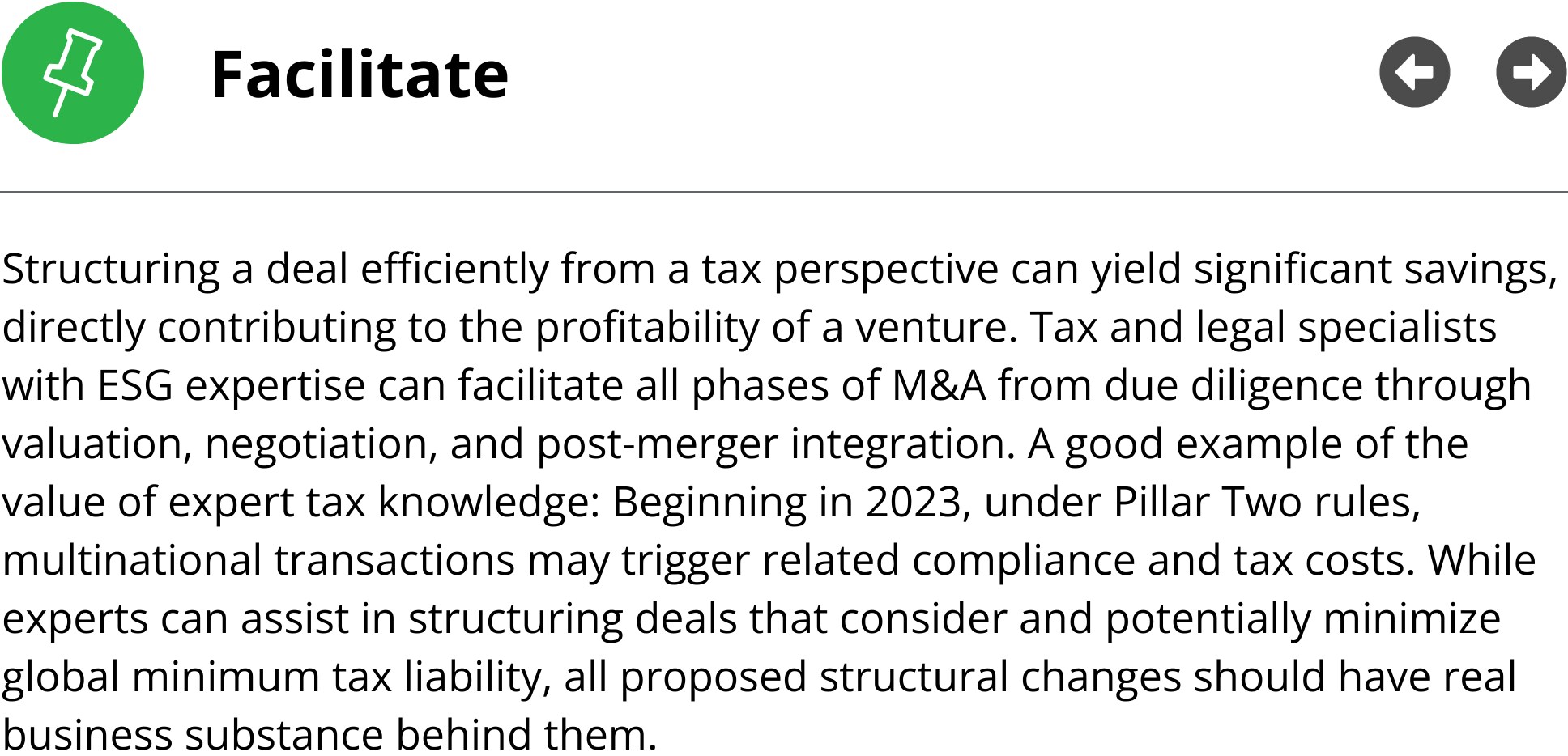Understanding the tax aspects of ESG in M&A
Are you ready to navigate the complex landscape of ESG in M&A and unlock the potential for growth and competitive advantage?
ESG is rising in importance in M&A
For both businesses and investment firms, the last few years have seen an increasing focus on environmental, social, and governance (ESG) factors in corporate valuation—so much so that a company’s commitment to ESG and the effectiveness of its ESG programs have become important factors in mergers and acquisitions (M&A). it’s increasingly common for ESG to be among the primary rationales for a transaction.
As companies strive to prioritize sustainability, responsible practices, and long-term growth, understanding the tax and legal implications of ESG in M&A becomes crucial. The result is a range of new challenges—and potential opportunities for those with the knowledge and skills to address them.
This article explores ESG’s impact on the M&A lifecycle, including due diligence, valuation, negotiation, and post-merger integration, and its growing influence on how deals are done. It then addresses the associated challenges from a tax standpoint, including those which are related to the due diligence process, and the critical role of tax leaders in managing ESG metrics throughout the M&A lifecycle.

How the tax department can inform and guide M&A negotiations
From assessing regulatory compliance to quantifying financing terms and evaluating social and governance factors, tax professionals can facilitate structuring deals from a tax perspective, educate stakeholders, ensure transparency, and align tax strategies with ESG objectives.

By integrating ESG into valuation and M&A processes with the help of tax and legal professionals, businesses can effectively evaluate and showcase their ESG investments. This integration leads to benefits such as cost savings, enhanced reputation, compliance with regulations, and enduring sustainability. Embracing ESG not only fosters long-term success but also opens up new, valuable opportunities for businesses.


